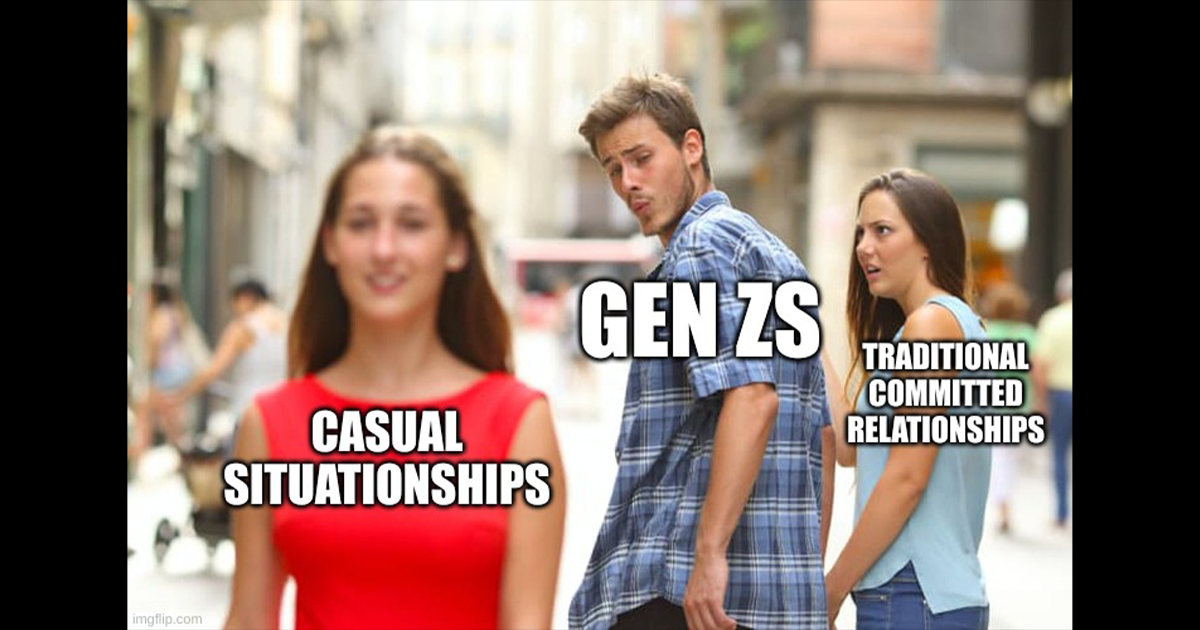Gen Z’s on quite a roll.
First, they ‘killed’ Facebook in favour of more visually-driven social media platforms like TikTok, Instagram, and Snapchat.
Then they ‘killed’ television, switching to online streaming platforms like Netflix, Stan and Disney+.
They’ve even been accused of preemptively ‘killing’ the meat industry, with more Gen Zs – who are committed to a more cruelty-free world – choosing to consume plant-based alternatives to meat and seafood and shaping a multi-billion dollar fake-meat market.
Now it seems like relationships are next on Gen Z’s hit list, with more young Australians giving serious, committed attachments the flick and embracing ‘situationships’ instead.
But before we continue, what is a ‘situationship’ exactly?
Situationships can loosely be defined as a casual romantic ‘entanglement’ that’s undefined or uncommitted and exists in a grey area between friendship and relationship.
An increasing body of research indicates Gen Zs worldwide embody this more pragmatic approach to love and sex compared to older generations.
Global SVP of Insights at Vice Media Group, Julie Arbit, surveyed 500 respondents from the UK and US and found that just one in ten Gen Zs were “committed to being committed”.
And these findings aren’t exclusive to the West.
Researchers in India, for example, found two in three Gen Zs (66%) accept that “not all relationships will be permanent, with a staggering 70% unwilling to enter a “limiting romantic relationship”.
So what’s got Gen Zs falling in love with ‘keeping it casual’?
Well, in addition to entering the adult dating world at an especially tenuous time – what with the COVID-19 pandemic, the threat of nuclear war, impending climate catastrophe, and terrifying financial insecurity – they might kind of just be like… more mature and empowered about it all (thanks to the increased access to relationship information online).
“Gen Z realise that they might have different partners at different times in their lives [who] may fulfil different needs,” Arbit told the BBC.
“They’re hyper-focused on themselves, and it’s not because they’re being selfish.
“They know they’re responsible for their own success and happiness, and they know they need to be able to take care of themselves before they can take care of others.”
Whatever one’s opinion on it, that does sound pretty healthy to us.






